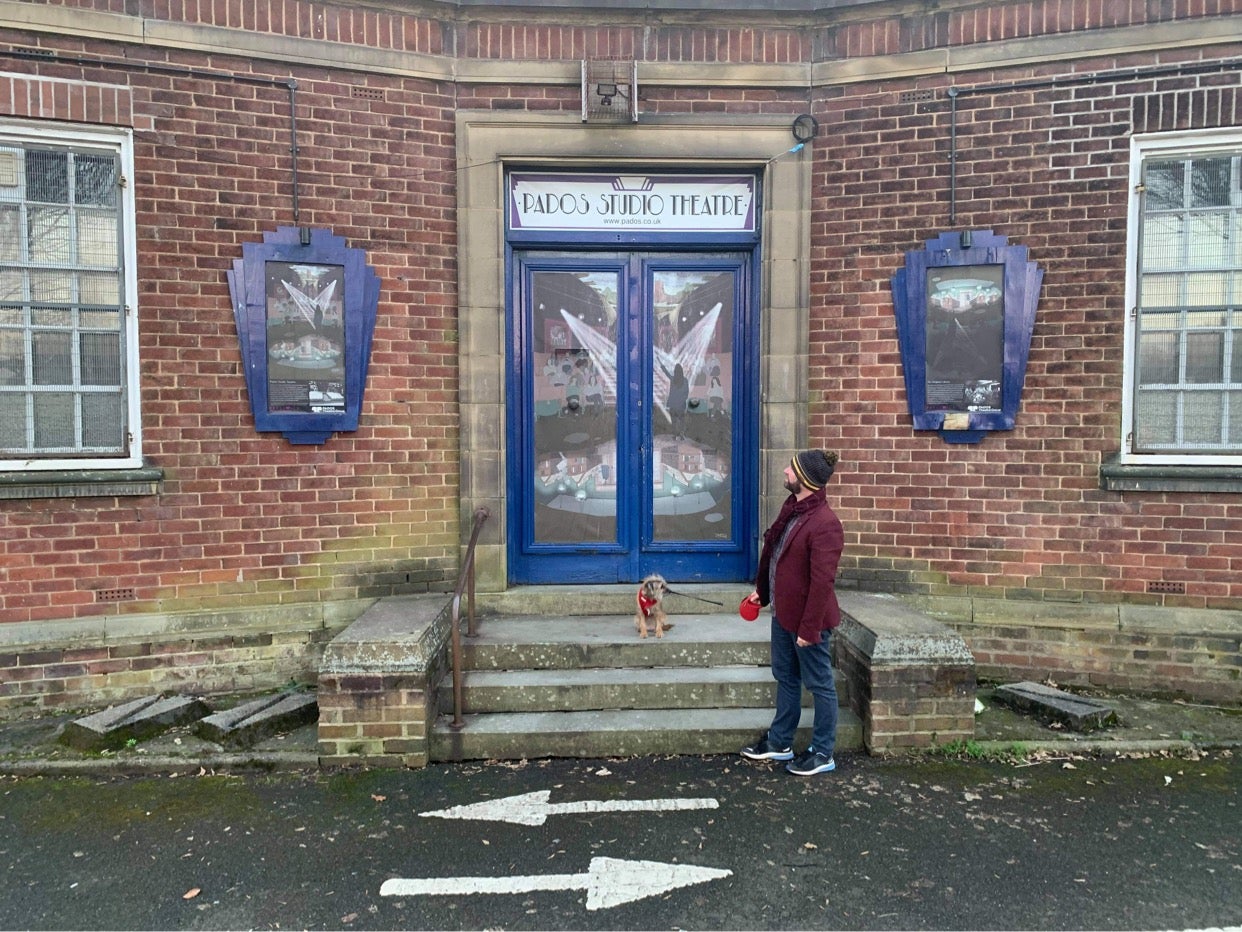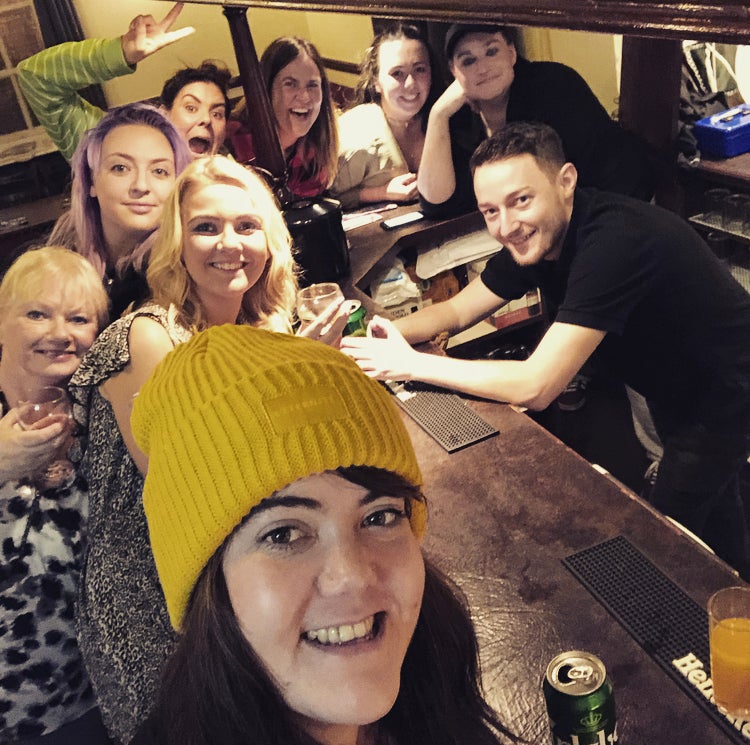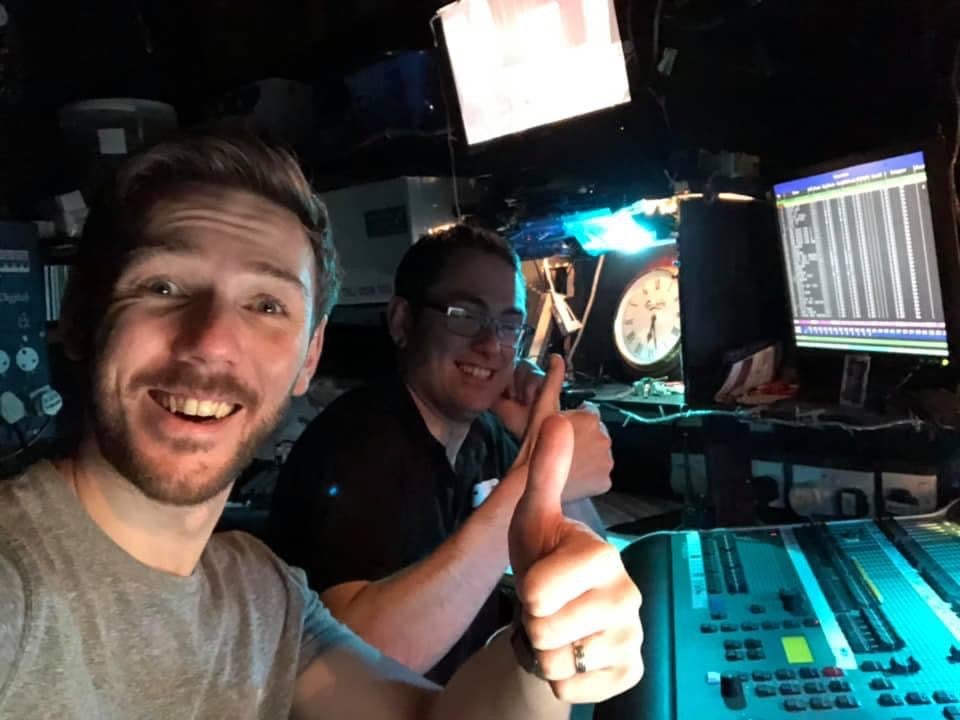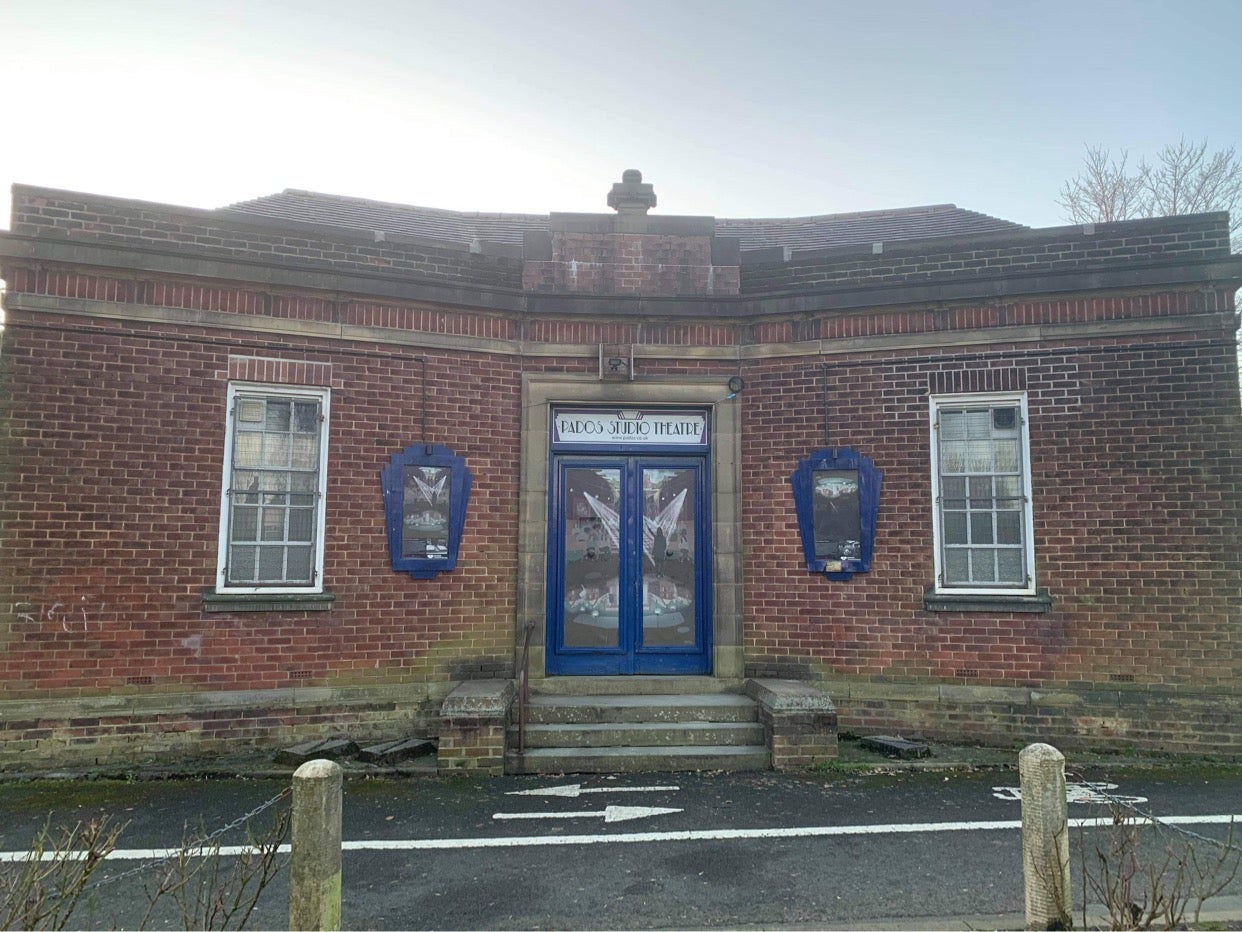Theatre has been hit hard… but the am-dram show must go on
Am-dram provides a sense of community, breeds the professional stars of tomorrow, and boosts local economies... and it’s suffering badly in the pandemic, reports David Barnett


Every day, Glen Clancy walks his dog Lola from his home in the north Manchester suburb of Prestwich to the local park. It's a short walk and each journey sees him passing what looks from the outside to be a fairly unassuming red-brick building. Inside, though, is such stuff as dreams are made of, or rather, was until a year ago. It’s the Studio Theatre, home of the Prestwich Amateur Dramatic and Operatic Society (Pados), and since the first lockdown began in March 2020, the theatre has been dark.
“You go from seeing people two, three, four times a week at rehearsals and planning and meetings, to nothing,” says Clancy, 50, who has been a member of Pados since 2018. “That place was always full of people, always alive. And now I walk past and it’s a shell of itself, it’s just empty, and that feels so sad.”
Read More:
The entertainment industry has obviously been hit very badly by the pandemic, and the focus has, quite naturally, been on professional theatre and performing; the sudden cancellation of shows, concerts and gigs has not only affected the performers but the huge number of freelancers attached to such productions, who have all been thrown out of work.
While those involved in the amateur dramatics scene have not necessarily suffered the same economic trials as those working in professional theatre, there have been adverse effects from Covid shutting down all operations – they are just a little more subtle, less obvious.

“It’s a huge outlet for people,” says Clancy. “We have people who are accountants, solicitors, nurses and am-dram is a huge outlet for them after their day jobs. And we have people for whom it is their lifeline, their social life, their way of getting out and meeting people. It tackled their problems of isolation. And it was all just cut dead at a stroke.”
There are around 120 members of Pados, not all of them performers. There are volunteers who work on the sets, the technical side, front of house, sales, often bringing their skills from their careers or hobbies into the society. And then there are the audiences, faithful fans who turn up for every production, come hell or high water, no matter what it is, people who wouldn’t generally make the trip to the West End or even into Manchester to see a touring professional show because of cost, mobility, or just because they want to be a part of something at the heart of their community.
And, of course, Pados and Prestwich are by no means alone in this. There are an estimated 7,000 active amateur theatre companies in the UK, with a combined membership of around 100,000 people. Two million people go to watch one of the 3,500 am-dram performances staged in this country every year – in normal years, at least – according to the National Operative and Dramatic Association (Noda), which oversees the industry across the country.

"Amateur theatre plays a significant part in the cultural life of the nation; helping with both physical and mental health, not just for the performers and all taking part, but for audiences too,” says Dale Freeman, the chief operating officer of Noda. “Those seeing a production, perhaps for the first time, feel more connected with their hometown or city than previously. Youngsters involved grow in confidence and self-esteem.
“Performers and those backstage feel a strong sense of collaboration and, in some cases, it unearths talent some did not know they possessed. Furthermore, acting is a good way of expressing what you might be in real life. For those who are in need of friendship, it also introduces them to new friends, young and old.”
Jack Forrest was 16 when he first got involved with Pados’s youth group. “Some of my closest friends are now from Pados,” says Forrest, now 24 and living in nearby Bury. “It really is just like a family that comes together to do a show. And we always look out for each other, and help each other out.”
I’d seen shows when I was a small kid but you don’t really make a distinction between am-dram and professional when you’re young. It’s just a show
When it was first suggested to Forrest that he joined the group, he confesses that he didn’t really know that am-dram even existed. "I'd seen shows when I was a small kid but you don’t really make a distinction between am-dram and professional when you're young,” he says. “It’s just a show.”
After three years with the youth group he graduated to the adult company, and has performed in many productions, his favourite being the annual Christmas pantomime. And he can see in the faces in front of him the magic he felt as a child watching his first shows. “It’s quite a small theatre, about 64 seats,” says Forrest. “So you can see the audience up close. You can tell which kids are there for the first time. It’s really magical.”
Noda says that a huge number of people working in theatre, film and television today cut their teeth in am-dram, and that’s certainly true for Jack. He is now a lead director with Bury Youth Theatre, a freelance video production editor, and runs a children’s theatre in Haslingden. As well as finding a family with Pados, he also made a career out of it.
Of course, those careers – professional and amateur – in theatreland have been seriously curtailed in the past 12 months. Pados usually stages its first production of the year in April, so after rehearsing for months for the 2020 show, it was cancelled as the first lockdown measures were announced in March.

Clancy had been rehearsing for that spring show, Barnum, and was also due to make his directorial debut with Stepping Out this September. As the coronavirus pandemic started to take hold, it became apparent that the work they had done on those shows, as well as the youth group’s production of Jesus Christ Superstar, was all going to be for nothing.
“We just had to put the brakes on everything without much warning,” says Clancy, now a committee member of the society. “Nobody knew what was going to happen. At first, everyone was thinking that it would only be for a few weeks. And then it started getting more serious, and then we were just told everything was cancelled and we couldn’t go into the theatre.”
It was a huge blow for the company but also for the local community. “Am-dram is as much of an outlet for audiences as it is for the people involved in the production,” says Clancy. “For some people, it’s the focus of their social calendar. They might have family or friends performing, or it might be the only way they can experience theatre at all.”
And it has material benefits to the local community as well. “Noda’s members groups generate between £150m and £200m in ticket sales with at least the same being produced in additional spending, including: food, drink, travel and accommodation,” says Freeman. “The vast majority of this supports a wide range of businesses, including theatres, village and community halls, theatrical suppliers, restaurants, musicians, bars and hotels. Many groups also raise significant sums for local and national charities with post-show collections and specific fundraising events.”

We should also, says Clancy, forget the old, outdated idea of am-dram being, well, amateur. “The standard of shows these days is really, really high,” he says. “To be honest, I was surprised by that when I first got involved.”
Clancy had started off with the Warrington Youth Theatre, where he grew up, when he was 14 and that kickstarted his thirst for a career in the performing arts, which he studied at Liverpool. He then went on to work as a dancer, performing all over the world and on cruise ships, where he met his husband, David.
It was after moving to Prestwich that he started to go and watch productions at Pados, but it was some years before he got involved in it. He recalls: “One of my friends is a producer for Disney and we were having a chat and I said, God, I miss performing so much, but I don’t really know how I’d get back into it.”
By this point Clancy was working in Human Resources for a big company, and his friend told him to check out am-dram. “He said to me, you’ll be surprised how many people involved in local societies are ex-performers,” he says. “And he told me that they’d really raised the bar with the standard, and how this was the breeding ground for future stars.”
Walking Lola one day in 2018 he passed Pados as usual and noticed that they were doing Chicago, his favourite musical. “Well, I took that as a sign,” he says. “I dusted off my dancing shoes and went down for an audition, and that was that.”
There was even more bad news to come for Pados in 2020. Heavy rains last summer caused flooding, which pretty much ruined the entire theatre. Because the building wasn’t being used, nobody caught the problem early enough and the damage was widespread. Members are now trying to repair and refurbish the building themselves ahead of being able to open, if all goes well, later this year.

“We’ve been able to get in to do some work but of course it’s difficult with social distancing,” says Clancy. “I managed to strip down some of the damaged wallpaper last week and it was the first time I’d been in the theatre since August. It did feel a lot like getting back to your family.”
But it won’t be as simple as giving the theatre a lick of paint and throwing open the doors with a song and dance number. “At the present time, virtually all amateur theatre productions have been cancelled across the country, and given the lead time for productions, it is unlikely there will be many, if any, productions before the end of 2021,” says Freeman. “This is a significant loss to the cultural and economic life of the UK.
“Many groups have been making use of technology to keep in touch, rehearse, or put together videos to entertain their audiences via social media channels. They are eager to maintain their involvement and to resume a normal programme as far as they can. Performing groups and audiences alike are desperate for theatre to resume. Theatre was halted during the war years but returned stronger than ever – and it will again.”
When things do get moving again, am-dram will have to be led by what happens in professional theatre. Societies can’t just put on whatever show they want whenever they want. Permission has to be granted and there has to be consideration of what’s going on elsewhere, especially on the touring circuit. If there is a touring production of, say, 42nd Street that will hit Manchester and Liverpool at some point, the producers won’t want an am-dram performance running in Prestwich at the same time, which shows just how slick am-dram productions have become, if there’s fear they will dilute ticket sales for the big professional productions.
Read More:
For people like Jack Forrest and Glen Clancy, who are enmeshed in the am-dram community, a return to some kind of normality can’t come soon enough. “It’s been the worst year we could imagine,” says Forrest. “With the damage to the theatre added to the pandemic. It feels like we’ve lost pretty much everything. But we’ll get there.”
Clancy's day job in Human Resources has been busier than ever during the crisis, and he’s desperately missed his am-dram outlet. “It’s like a pressure valve,” he says. “If you’re dealing with stressful and upsetting situations that other people are in all day, this is kind of an escape. I can’t wait to get back to it.”
He ends the conversation to take Lola for her daily walk past the shuttered Prestwich theatre which, he and his fellow am-dram society members hope, won’t stay dark for much longer. Never before, he says, has that old theatre adage been more appropriate. “The show must go on,” says Clancy, with an appropriately theatrical flourish.
Join our commenting forum
Join thought-provoking conversations, follow other Independent readers and see their replies
Comments
Bookmark popover
Removed from bookmarks